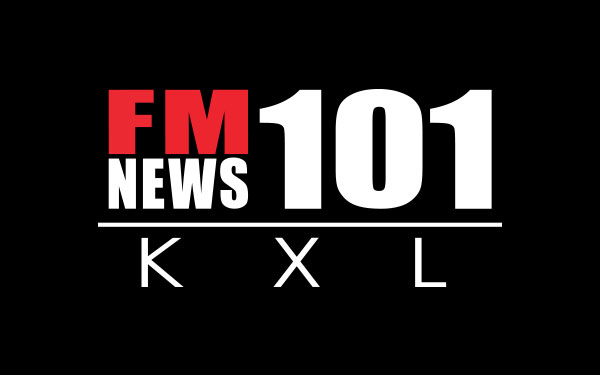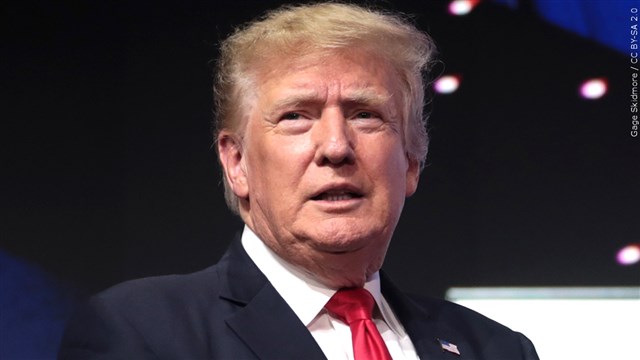Defense Reacts To Supreme Court Ruling On Washington H.S. Football Coach

Washington, D.C. — The Supreme Court ruled that a former Bremerton, Washington high school football coach had a constitutional right to pray at the 50-yard line after his team’s games.
In the 6-3 ruling of Kennedy v. Bremerton School District justice Neil Gorsuch wrote in the majority opinion “Respect for religious expressions is indispensable to life in a free and diverse republic — whether those expressions take place in a sanctuary or on a field, and whether they manifest through the spoken word or a bowed head,” adding “(Coach Joe) Kennedy lost his job… after he knelt at midfield after games to offer a quiet personal prayer.”
In the dissenting opinion, you can see how vastly different the two sides saw the issue.
“To the degree the Court portrays petitioner Joseph Kennedy’s prayers as private and quiet, it misconstrues the facts. The record reveals that Kennedy had a longstanding practice of conducting demonstrative prayers on the 50-yard line of the football field. Kennedy consistently invited others to join his prayers and for years led student athletes in prayer at the same time and location,” wrote Justice Sonia Sotomayor.
And that, according to the school district’s defense, is the core of the issue. That these prayers were not private and created pressure for players on the team to join in. Adding that, he wouldn’t even be able to conduct such a visible prayer at the 50-yard line if it weren’t for his public, state funded, job. Creating what the defense says is a dangerous standard by overruling six decades of precedent that’s been adopted by both conservative and liberal justices.
“Justice Sotomayor, joined by Justices Elena Kagan and Stephen Breyer, included pictures that visibly demonstrate that this coach was doing nothing private and personal,” said Rachel Laser CEO of Americans United for Separation of Church and State, the organization that worked as the defense. “He was engaging in demonstrative prayer that was pressuring students to join him at a time and place where he wouldn’t otherwise have access, but for his job as a public official.”
Laser goes on to explain why the prayers were coercive and put pressure on students.
“The type of this governmental endorsement of religion is it makes certain students feel like outsiders. If they’re a religious minority, if they’re a non-religious student, even if they’re a Christian that doesn’t believe in ostentatious prayer or prays differently, or is worried about their friends religious freedom. It makes all of those students feel like outsiders. And it makes those that pray the same way as the coach as insiders,” Laser says. “Another issue is, that students are going to be forced to choose between their religious freedom and the religious practices of their family, and the benefits that they want so badly that the coach holds. Anything from playing time, to recommendations, to a college scholarship.”
Mike Berry, the lead attorney for Kennedy, says this was a pivotal case for the First Amendment.
“We’re all thrilled, not just for Coach Kennedy, we’re thrilled for America. This is a great decision for anyone who loves our constitution and values religious freedom,” Berry told the Lars Larson Show on KXL.
Berry, who is with the First Liberty Institute, shares the lasting impact this ruling will have.
“Whatever happens between Coach Kennedy and the Bremerton School District is between them. But this decision is going to have lasting impacts for generations. Future law students are going to be studying this decision and learning what our First Amendment means and what it means to be an American citizen and to not lose your freedom, not have your freedom stripped away by your employer just because you want to live out your faith while you’re on the job,” said Berry.
Berry says it’s unclear if Kennedy will get his job back or reach a settlement with the district.
“That’s where he belongs, that’s where he feels called, to be there with those students. Pouring into them as he did for many, many years with great success,” Berry said. “If he has the opportunity, which he should, and we fully expect he will, to get back on the sidelines, he’s going to take the first chance he gets.”
With that, Laser says the religious community in Bremerton weren’t supportive of Kennedy.
“The ten Bremerton-area clergy who came forward in the case, in the friend of a court brief, were all on the side of the school children and district. They were all worried about school children’s religious freedom,” Laser added. “The Methodist Bishop, the Episcopal Bishop, the Lutheran Bishop, the equivalent of the American Baptist Bishop, two Rabbis. The only clergy that even spoke out to the court in this case, spoke on the side of the Bremerton School District.”
Despite that, the ruling is final. Berry explains.
“In Coach Kennedy’s case it was very important to the legal team, that they said, that Kennedy is entitled to summary judgement. The decision of the lower court is reversed period,” Berry adds. “The reason that’s so important, is a lot of time the court will say the decision of the lower court is reversed and remanded. That means its sent back, and you have to continue to slog it out in the lower courts.”
Laser shares what she sees as the lasting impact of the ruling.
“It opens the door to coaches and teachers claiming that what they’re doing is just private and personal, whereas really, they’re using their power that is given to them by the state to pressure students to join in a religion that isn’t theirs or their families.”
You Might Also Like



